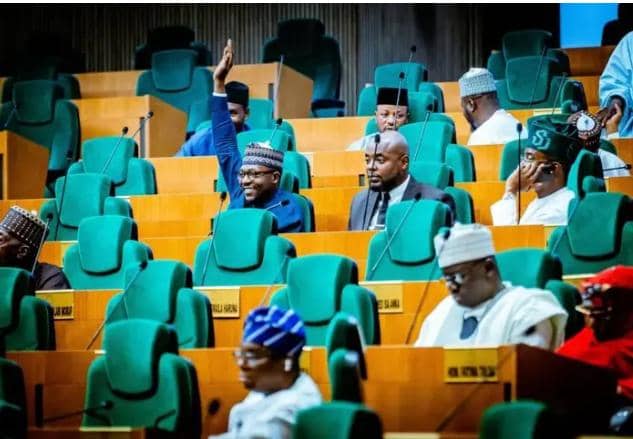The House of Representatives has progressed a controversial bill penalizing eligible voters who abstain from general elections.
The bill passed its second reading and now awaits further review by the House Committee on Electoral Matters.
Diaspora Digital Media (DDM) reports that the proposed legislation has stirred significant debate among lawmakers and members of the public.
Spearheaded by Speaker Abbas Tajudeen and Hon. Daniel Ago, the bill aims to amend the Electoral Act 2022.
The proposed amendment mandates all eligible Nigerians aged 18 and above to vote in national and state elections.
Failure to comply could attract a fine of N100,000 or a six-month prison sentence, according to the proposal.
Section 47(4a) of the amendment explicitly states that voting shall be mandatory for registered adult citizens.
Proponents argue the law would combat low voter turnout and promote a stronger sense of civic responsibility.
Speaker Abbas Tajudeen emphasized that higher participation would create a more inclusive and representative democracy in Nigeria.
They believe mandatory voting will encourage engagement, especially among youths and politically apathetic segments of the population.
Supporters also claim it will produce more credible electoral outcomes reflecting the true will of the people.
However, the bill has attracted sharp criticism from lawmakers concerned about its feasibility and potential human rights violations.
Critics questioned how the government would enforce voting in remote or conflict-affected areas across the country.
Concerns were raised about the credibility and accuracy of the voter register currently in use.
Many lawmakers argue that penalizing non-voters is unfair in a system plagued by electoral irregularities and distrust.
They noted that electoral processes are often disputed, undermining the legitimacy of enforcing such penalties.
Opponents also fear that forcing citizens to vote could violate their freedom of choice and democratic rights.
During the session, vocal opposition was evident despite Speaker Tajudeen ruling in favor of the ‘aye’ votes.
The decision allowed the bill to move forward despite louder objections from lawmakers on the chamber floor.
The bill now rests with the House Committee on Electoral Matters for deeper evaluation and possible revisions.
Its fate remains uncertain as public opinion and further parliamentary debates are expected to influence the outcome.
The debate has sparked national discussions on civic responsibility, democratic rights, and electoral reform in Nigeria.
Kindly share!!



